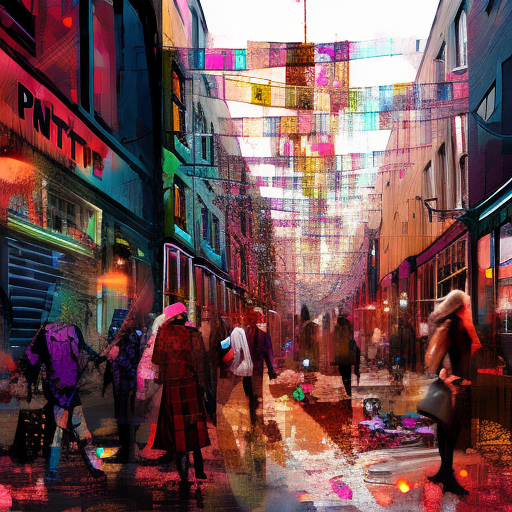One-line Summary:
Brick Lane is a captivating novel that explores the journey of a Bangladeshi woman living in London, as she navigates cultural clashes, personal growth, and the pursuit of her own identity.
The Story of Nazneen
Brick Lane, written by Monica Ali, follows the life of Nazneen, a young Bangladeshi woman who moves to London after an arranged marriage. Set in the vibrant neighborhood of Brick Lane, the novel delves into Nazneen’s experiences as she grapples with cultural clashes, personal growth, and the pursuit of her own identity.
Nazneen’s story begins in her rural village of Gouripur, where she is married off to Chanu, a man twice her age. Leaving behind her family and everything she knows, Nazneen embarks on a new life in the bustling city of London. Initially, she feels isolated and overwhelmed by the unfamiliarity of her surroundings. As she settles into her new life, Nazneen finds solace in her sister, Hasina, who remains in Bangladesh and shares her own tales of love, loss, and rebellion through letters.
Cultural Clashes and Personal Growth
As Nazneen navigates the cultural clashes between her traditional Bangladeshi upbringing and the fast-paced, multicultural environment of London, she begins to question her own beliefs and desires. She finds herself torn between the expectations placed upon her as a wife and mother, and her own dreams and ambitions.
Through her interactions with the diverse community in Brick Lane, Nazneen encounters people from different backgrounds who challenge her preconceived notions and broaden her perspective. She forms a bond with Karim, a young radical activist who introduces her to the world of political activism and self-expression. This relationship becomes a catalyst for Nazneen’s personal growth and the exploration of her own desires and independence.
The Pursuit of Identity
Throughout the novel, Nazneen grapples with the concept of identity. She questions whether her identity is solely defined by her roles as a wife and mother, or if she can forge her own path and create a sense of self outside of societal expectations. As she becomes more empowered and self-assured, Nazneen begins to challenge the traditional gender roles and cultural norms that have confined her.
As the story unfolds, Nazneen faces a series of challenges and pivotal moments that force her to confront her own desires and make difficult choices. These choices ultimately shape her identity and allow her to break free from the constraints of her past.
Key Takeaways:
- Brick Lane explores the complexities of cultural identity and the challenges faced by immigrants in adapting to a new environment.
- The novel highlights the importance of personal growth and self-discovery in the pursuit of one’s own identity.
- It delves into the themes of love, loss, and the power of human connection.
“For a moment she was quiet. Then she said, ‘I want to be free. I want to be myself. I don’t want to be a wife and mother. I don’t want to be a sister and daughter. I don’t want to be what other people want me to be. I want to be what I want to be.'”
Brick Lane is a thought-provoking and emotionally resonant novel that explores the universal themes of identity, cultural assimilation, and personal growth. Through Nazneen’s journey, readers are invited to reflect on their own sense of self and the power of embracing one’s true desires.












